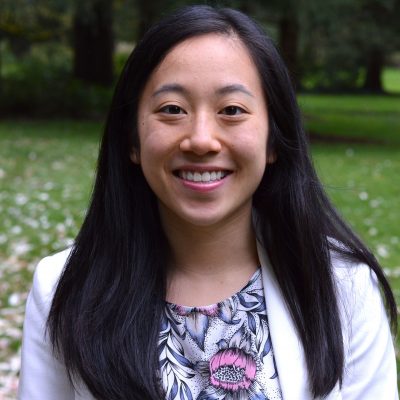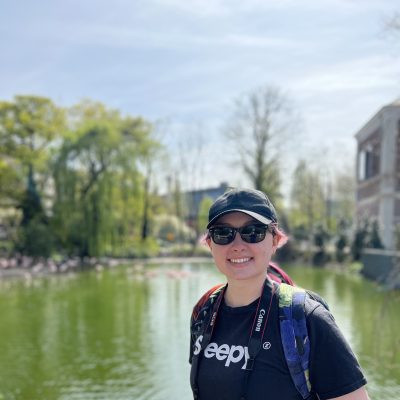Article
Michelle Lo’s Action Project addresses the often difficult conversations surrounding racism and anti-racism. In a society that prefers to be “colorblind” when it comes to racial injustices from overt and covert racism, this student-created zine provides an accessible way for younger generations (and beyond) to learn about and to begin having these conversations about microaggressions, culture, environmental racism, and our histories.
Michelle’s Aspirations
After a turbulent pandemic year that saw a simultaneous rise in hate speech and physical violence towards people of color, in particular Black and Asian people, Michelle wanted to center her project on racial justice education in her Northern California community. Seeing youths’ creativity and resilience during the pandemic inspired Michelle to work with students to continue the conversation around race.
The core idea of this project is a student-created collective zine. Zines are self-published “magazines” that are easily circulatable by means of photocopying. The name of this project imitates the book series, Sisterhood of the Traveling Pants. However, the name broadens the gendered inclusivity of this project to humanhood, as race is a deeply human, though socially constructed, part of our being.
Seeing youths’ creativity and resilience during the pandemic inspired Michelle to work with students to continue the conversation around race.
Project development
As a high school teacher, Michelle organized a Student Equity Team, which is a group of students at the school who are interested in learning more about antiracism as it contributes to equity at school. Michelle co-led and co-planned workshop meetings with another teacher and recruited students who they thought might be interested in participating.
The workshops occurred 1-2 times a month and towards the end of the school year, the students developed drafts of the zine pages that eventually became the final publication. Michelle then digitized the zine and published the link on social media to share and also distributed physical copies of the zine in public spaces in the community.
In order to increase access and recruit participants to attend workshops during and after school hours, Michelle wanted to provide a space where students could have snacks and discuss the topics surrounding anti-racism together. She also needed supplies for the creation of the zine.
Understanding that fundraising for these resources is a huge endeavor in itself, Michelle applied and received the 2021 Racial Equity Grant to fund these resources. Michelle also sought out her school’s funds to purchase copies of This Book is Anti-Racist by Tiffany Jewell to provide for workshop participants as a guiding resource.
As long as the zine continues to be circulated, the conversation continues!
Next Steps
In Michelle’s eyes, the next steps for this project are never-ending. “As long as the zine continues to be circulated, the conversation continues!” she explains. “Anyone can self-publish a zine, and Michelle hopes this project inspires others to share their voices.”
Updated in August 2022




